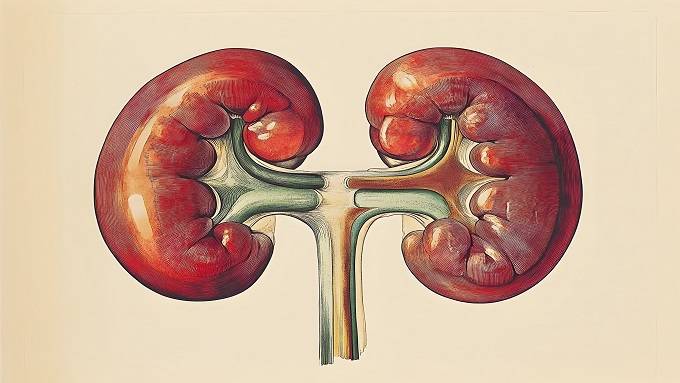AGE, SEX, AND TYPES OF OCCUPATION WITH HISTOPATHOLOGICAL TYPES IN PATIENTS WITH OCULAR SURFACE SQUAMOUS NEOPLASIA (OSSN) IN A TERTIARY HOSPITAL IN SURABAYA, INDONESIA

Downloads
Highlights
- The histopathological types of OSSN were significantly associated with age and occupation.
- The study's findings enhance the understanding of OSSN in Indonesia and emphasize the importance of UV exposure, occupation, and age in its development.
Abstract
Background: Ocular Surface Squamous Neoplasia (OSSN) is a spectrum of tumors affecting the conjunctiva and cornea, in which a more invasive type of OSSN has a higher recurrence rate. As a tropical country, Indonesia is constantly exposed to intense ultraviolet (UV) radiation, the main risk factor for OSSN. Despite this, there are very few studies regarding OSSN in Indonesia. Objective: This study aimed to analyze the association between sociodemographic characteristics such as age, sex, and types of occupation (outdoor and indoor) and histopathological types of OSSN to fill the gap in research and contribute to early diagnostic strategies. Material and Method: Sociodemographic and histopathological data were extracted from the medical records of patients who were histopathologically diagnosed with OSSN at Dr. Soetomo General Hospital from 2017 to 2021. Data from 88 samples that met the inclusion and exclusion criteria were classified and analyzed with descriptive statistics and a two-sided Fisher's exact test using SPSS version 27.0 (IBM Corp., Armonk, N.Y., USA). Result: The exact test results of the two-sided fisher revealed a statistically significant relationship between age (p = 0.0004) and occupation type (p = 0.049) with histopathological types of OSSN. However, no significant association was found between sex and histopathological types of OSSN (p = 0.130). Conclusion: Age and occupation were found to have a significant association with the histopathological types of OSSN, reinforcing the need for further exploration of its strength and nature to be considered by future researchers.
Ardjaja, Y. K. 2017. Ocular surface squamous neoplasia patient's characteristic at RSUP Sanglah Denpasar 2013-2015. Medicina, 48(3). doi: 10.15562/medicina.v48i3.144.
Barnes, P. W., Robson, T. M., Zepp, R. G., et al. 2023. Interactive effects of changes in UV radiation and climate on terrestrial ecosystems, biogeochemical cycles, and feedbacks to the climate system. Photochemical & Photobiological Sciences, 22(5): 1049–1091. doi: 10.1007/s43630-023-00376-7.
Cicinelli, M. V., Marchese, A., Bandello, F., et al. 2018. Clinical management of ocular surface squamous neoplasia: A review of the current evidence. Ophthalmology and Therapy, 7(2): 247–262. doi: 10.1007/s40123-018-0140-z.
Cox-Ganser, J. M., Henneberger, P. K. 2021. Occupations by proximity and indoor/outdoor work: Relevance to Covid-19 in all workers and black/Hispanic workers. American Journal of Preventive Medicine, 60(5): 621–628. doi: 10.1016/j.amepre.2020.12.016.
D'Orazio, J., Jarrett, S., Amaro-Ortiz, A., et al. 2013. UV radiation and the skin. International Journal of Molecular Sciences, 14(6): 12222–12248. doi: 10.3390/ijms140612222.
Dandala, P. P. 2015. Ocular surface squamous neoplasia (OSSN): A retrospective study. Journal of Clinical and Diagnostic Research, 9(11). doi: 10.7860/JCDR/2015/16207.6791.
Donsbach, J., Tsacoumis, S., Sager, C., et al. 2003. O*NET analyst occupational abilities ratings: Procedures. Suite. Available at: https://www.onetcenter.org/dl_files/AnalystProc.pdf.
Gichuhi, S., Sagoo, M., Weiss, H. A., et al. 2013. Epidemiology of ocular surface squamous neoplasia in Africa. Tropical Medicine & International Health, 18(12): 1424–1443. doi: 10.1111/tmi.12203.
Gichuhi, S., Ohnuma, S., Sagoo, M. S., et al. 2014. Pathophysiology of ocular surface squamous neoplasia. Experimental Eye Research, 129: 172–182. doi: 10.1016/j.exer.2014.10.015.
Gichuhi, S., Macharia, E., Kabiru, J., et al. 2015. Clinical presentation of ocular surface squamous neoplasia in Kenya. JAMA Ophthalmology, 133(11): 1305. doi: 10.1001/jamaophthalmol.2015.3335.
Gichuhi, S., Macharia, E., Kabiru, J., et al. 2016. Risk factors for ocular surface squamous neoplasia in Kenya: A case-control study. Tropical Medicine & International Health, 21(12): 1522–1530. doi: 10.1111/tmi.12792.
Gurnani, B., Kaur, K. 2023. Ocular surface squamous neoplasia. StatPearls. Available at: http://www.ncbi.nlm.nih.gov/pubmed/34262162.
HÓ§llhumer, R., Williams, S., Michelow, P. 2020. Ocular surface squamous neoplasia: Population demographics, pathogenesis, and risk factors. African Vision and Eye Health, 79(1). doi: 10.4102/aveh.v79i1.553.
HÓ§llhumer, R., Michelow, P., Williams, S. 2023. Demographics, clinical presentation and risk factors of ocular surface squamous neoplasia at a Tertiary Hospital, South Africa. Eye, 37(17): 3602–3608. doi: 10.1038/s41433-023-02565-1.
IBM Corp. 2020. IBM SPSS Statistics for Windows, Version 27.0. Armonk, NY: IBM Corp. Available at: https://www.ibm.com/support/pages/downloading-ibm-spss-statistics-27010.
International Labour Organization. 2010. International Standard Classification of Occupations (ISCO), ILO. Available at: https://www.ilo.org/public/english/bureau/stat/isco/index.htm.
Istirohah, T., Sari, D. M., Jannah, M. A., et al. 2018. Synthesis and bioactivity of TiO 2 /PPy micelle with Pachyrhizus erosus extract as UV absorbent material. Journal of Physics: Conference Series, 1093: 012023. doi: 10.1088/1742-6596/1093/1/012023.
Lomelí-Linares, D., García-Salgado, L., Riancho-Sánchez, G., et al. 2020. Frequency of conjunctival epithelial dysplasia in patients with pterygium. Arquivos Brasileiros de Oftalmologia, 83(4). doi: 10.5935/0004-2749.20200053.
Meel, R., Dhiman, R., Vanathi, M., et al. 2017. Clinicodemographic profile and treatment outcome in patients of ocular surface squamous neoplasia. Indian Journal of Ophthalmology, 65(10): 936. doi: 10.4103/ijo.IJO_251_17.
Mishra, D. K., Taneja, S., Singh, V., et al. 2022. Histopathological spectrum of ocular surface squamous neoplasia: A retrospective study of 776 lesions. Indian Journal of Pathology & Microbiology, 65(1): 3–7. doi: 10.4103/IJPM.IJPM_1313_20.
Modenese, A., Korpinen, L., Gobba, F. 2018. Solar radiation exposure and outdoor work: An underestimated occupational risk. International Journal of Environmental Research and Public Health, 15(10): 2063. doi: 10.3390/ijerph15102063.
Rathi, S. G., Ganguly, A., Kaliki, S. 2018. Ocular surface squamous neoplasia in HIV-infected patients: Current perspectives. HIV/AIDS - Research and Palliative Care, 10: 33–45. doi: 10.2147/HIV.S120517.
Sandraningrum, S., Dahlan, M. R. 2019. Characteristic of ocular surface squamous neoplasia patients in Cicendo Eye Center within January 2012 - June 2014. Ophthalmologica Indonesiana, 43(1): 40. doi: 10.35749/journal.v43i1.136.
Smith, L. M., Lamba, S., Karp, C. L, et al. 2019. Epidemiology of ocular surface squamous neoplasia in Veterans: A retrospective case-control study. Eye and Vision, 6(1): 14. doi: 10.1186/s40662-019-0138-1.
Statistics Indonesia. 2023. Population 15 years and over who work according to main employment 1986 - 2022. Statistics Indonesia. Available at: https://www.bps.go.id/id/statistics-table/1/OTcwIzE=/penduduk-15-tahun-ke-atas-yang-bekerja-menurut-lapangan-pekerjaan-utama-1986---2022.html.
Suleiman, D. E., Liman, A. A., Waziri, G. D., et al. 2022. Clinicopathological characteristics of ocular surface squamous neoplasia: A 10-year review form a referral tertiary center in Nigeria. International Ophthalmology, 42(12): 3905–3911. doi: 10.1007/s10792-022-02411-5.
Tananuvat, N., Niparugs, M., Wiwatwongwana, D., et al. 2022. Ocular surface squamous neoplasia in Northern Thailand: A 16-year review. BMC Ophthalmology, 22(1): 121. doi: 10.1186/s12886-022-02340-y.
Tesfai, B., Kebede, S., Kibreab, F., et al. 2021. Prevalence of Solar Keratopathy, Pterygium and Cataract in the Islands of Northern Red Sea Zone, Eritrea: Cross-sectional study, 2021. Clinical Ophthalmology, 15: 2983–2991. doi: 10.2147/OPTH.S321413.
U.S. Bureau of Labor Statistics. 2018. 2018 Standard occupational classification system. U.S. Bureau of Labor Statistics. Available at: https://www.bls.gov/soc/2018/major_groups.htm.
Copyright (c) 2024 Stella Agatha Widjaja, Delfitri Lutfi, Linda Dewanti, Alphania Rahniayu, Fitria Kusumastuti

This work is licensed under a Creative Commons Attribution 4.0 International License.
1. The journal allows the author(s) to hold the copyright of the article without restrictions.
2. The journal allows the author(s) to retain publishing rights without restrictions.
3. The legal formal aspect of journal publication accessibility refers to Creative Commons Attribution 4.0 International License (CC-BY).
































